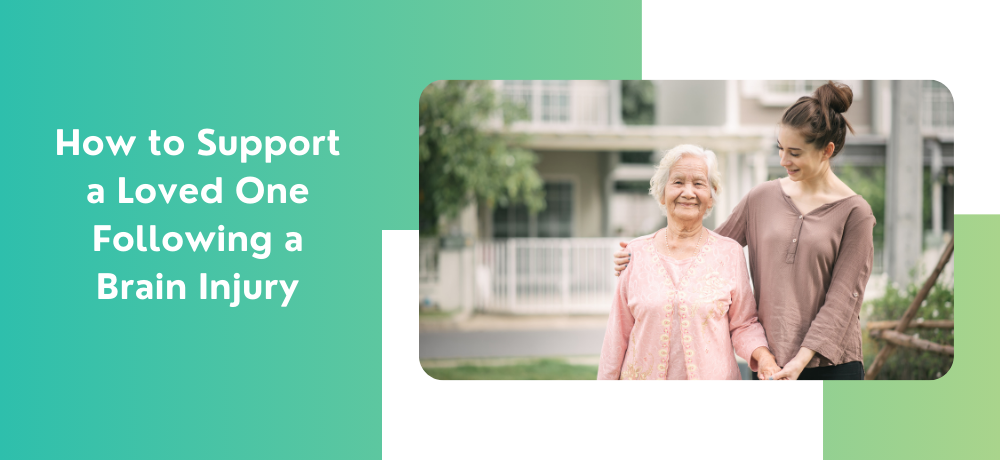How to Support a Loved One Following a Brain Injury

Life can change in an instant, and when a loved one experiences a traumatic brain injury (TBI), it can be a daunting journey. In this blog, we'll explore the various ways to support and care for a family member or friend who has undergone a brain injury. Understanding the challenges and knowing how to provide the right support is crucial during this difficult time.
Educate Yourself about Brain Injury: Understanding the Condition
Supporting a loved one with a brain injury begins with a deep understanding of the condition. Take the time to educate yourself about the specific type of brain injury your loved one has, whether it's a traumatic brain injury (TBI), a stroke, or another form. Knowledge about the brain injury's causes, symptoms, and potential long-term effects will enable you to provide more informed and effective support. Consult medical professionals, read reputable books, and consider joining support groups to gain insights into the challenges your loved one is facing.
Emotional Support for Coping with the Consequences of Brain Injury
A brain injury can lead to a wide range of emotional challenges, both for the individual and their family. As a caregiver, being a pillar of emotional support is vital. People with brain injuries may experience heightened emotions, mood swings, frustration, and even depression. It's crucial to be patient, empathetic, and available to listen without judgment. Encourage open communication about their feelings and reassure them that you are there to support them through the emotional rollercoaster that often accompanies brain injury recovery.
Assisting with Rehabilitation After Brain Injury
Rehabilitation is a critical aspect of recovery for individuals with a brain injury. To be a supportive caregiver, you can assist your loved one in adhering to their rehabilitation plan. This may involve accompanying them to therapy sessions, helping with exercises and therapies at home, and ensuring consistent medication management. A structured and goal-oriented approach to rehabilitation is key. Support your loved one in setting realistic goals, tracking progress, and maintaining motivation throughout the rehabilitation journey.
Creating a Safe and Accessible Environment for Brain Injury Recovery
Make necessary adjustments to the living space to provide an environment conducive to healing. This entails addressing physical limitations and cognitive challenges that may result from a brain injury. Install safety measures such as handrails and ramps, remove tripping hazards, and ensure that the living space is organized and clutter-free. Establishing routines and schedules can help create predictability and reduce anxiety, supporting your loved one's daily life as they navigate the effects of their brain injury.
Encouraging Social Interaction and Reducing Isolation
Brain injuries can lead to social isolation as individuals may find engaging with others or participating in their previous social activities challenging. As a caregiver, it's important to encourage and facilitate social interaction. Help your loved one maintain connections with friends and family, even if it means coordinating visits and outings. Additionally, consider finding local support groups or activities tailored to individuals with brain injuries. These opportunities for social engagement can have a significant impact on your loved one's emotional well-being and recovery journey.
Supporting a loved one through a brain injury is challenging, but with the right guidance and professional assistance, it becomes more manageable. Contact Argus Home Health today to learn about our specialized care services for brain injury survivors.
To learn more about what we do, please click here. To contact us, please click here.
Get in touch with Argus Home Health today!